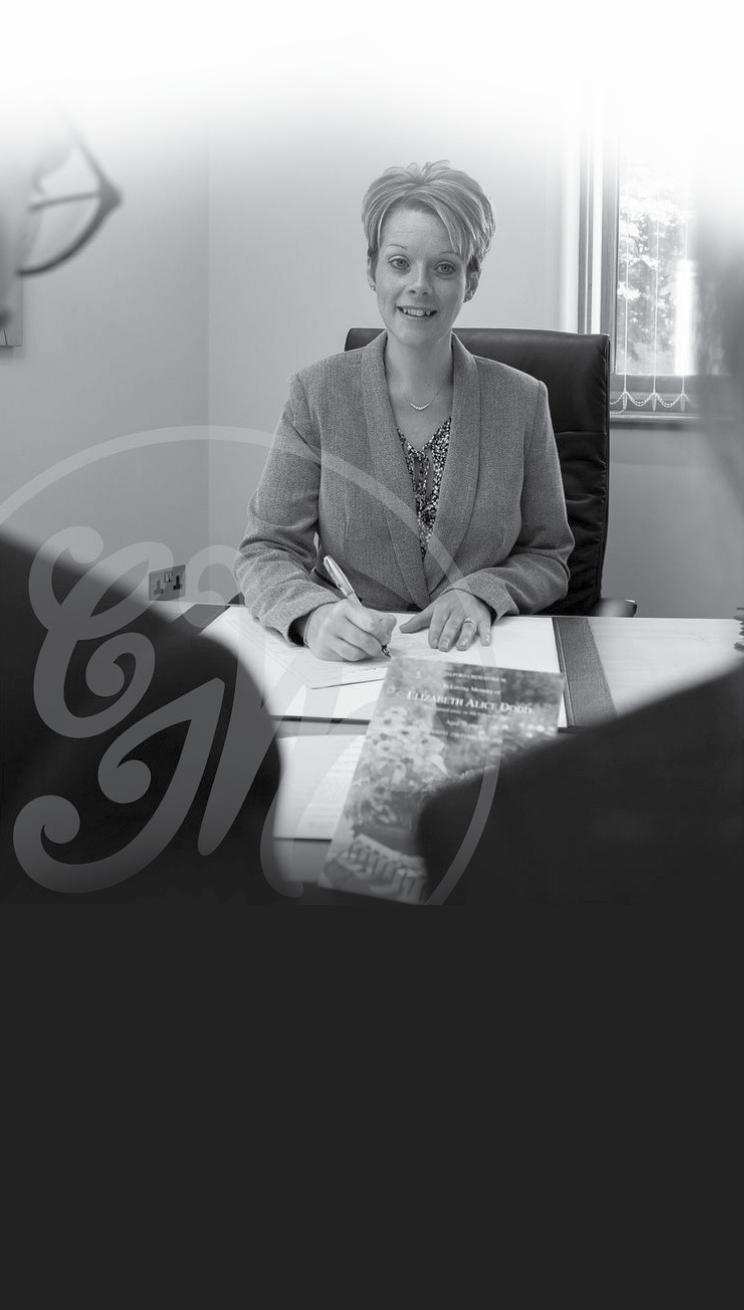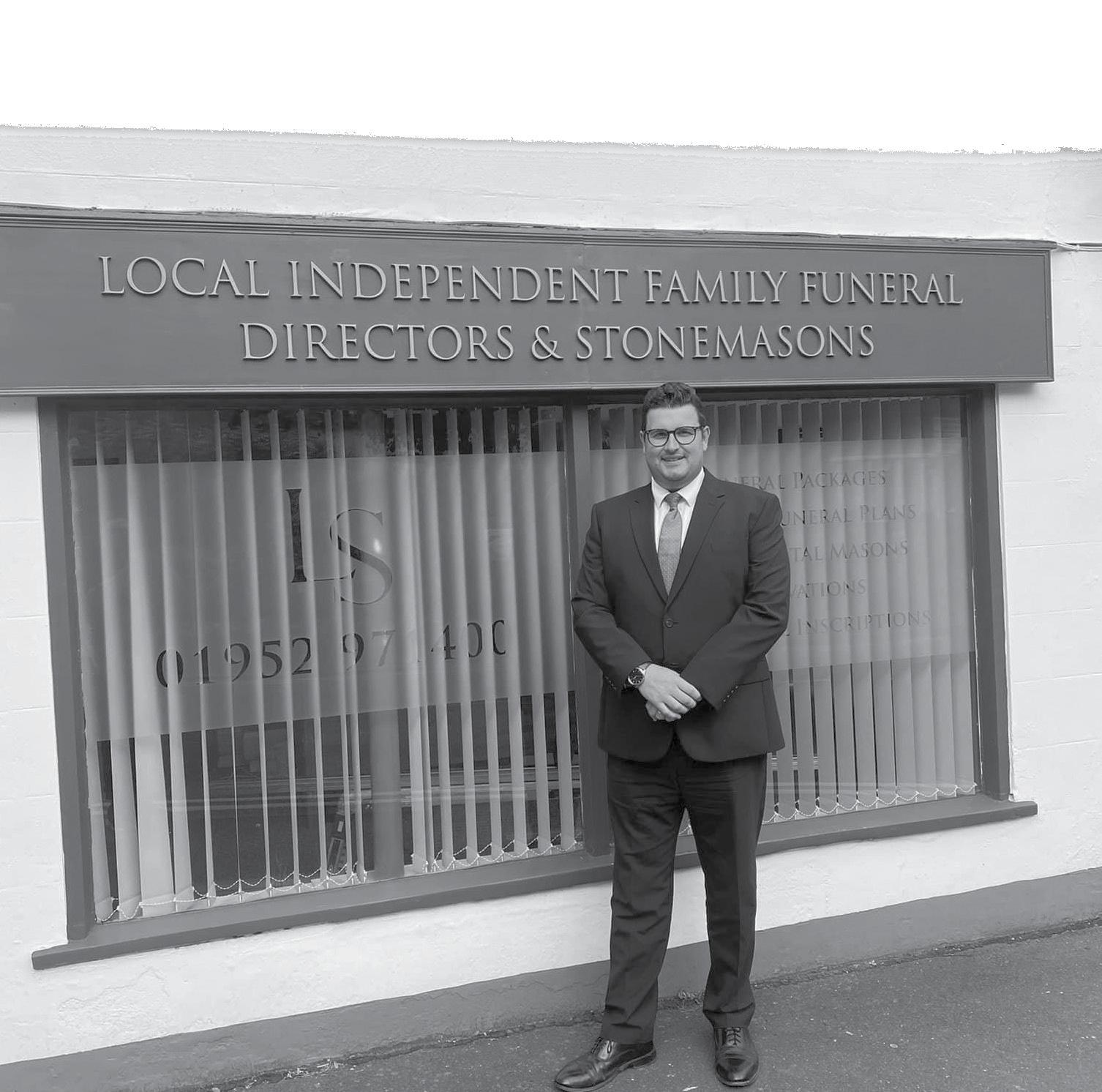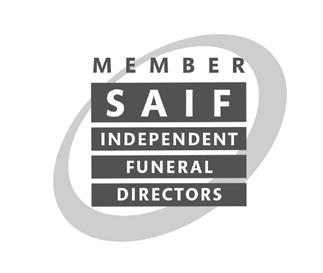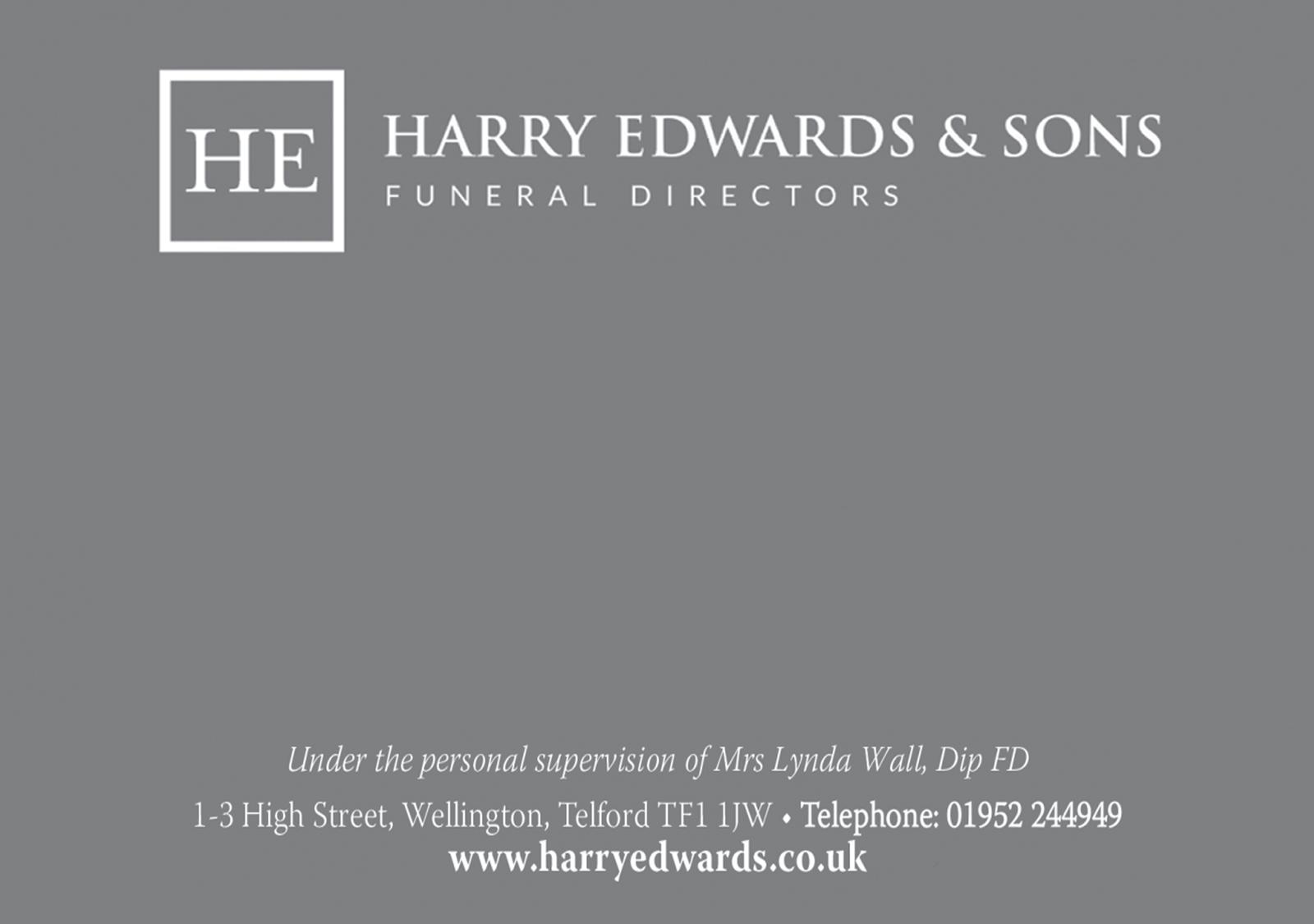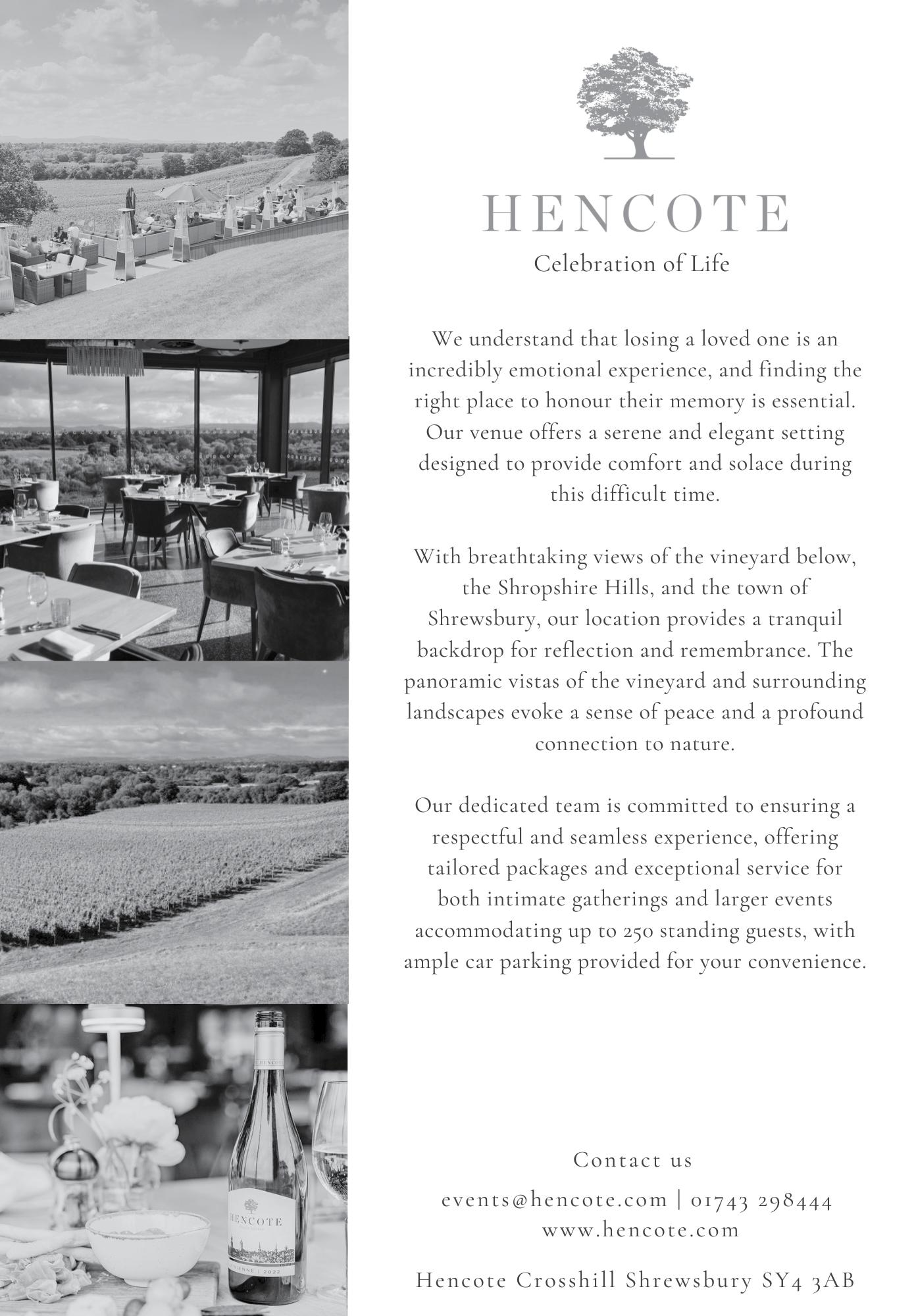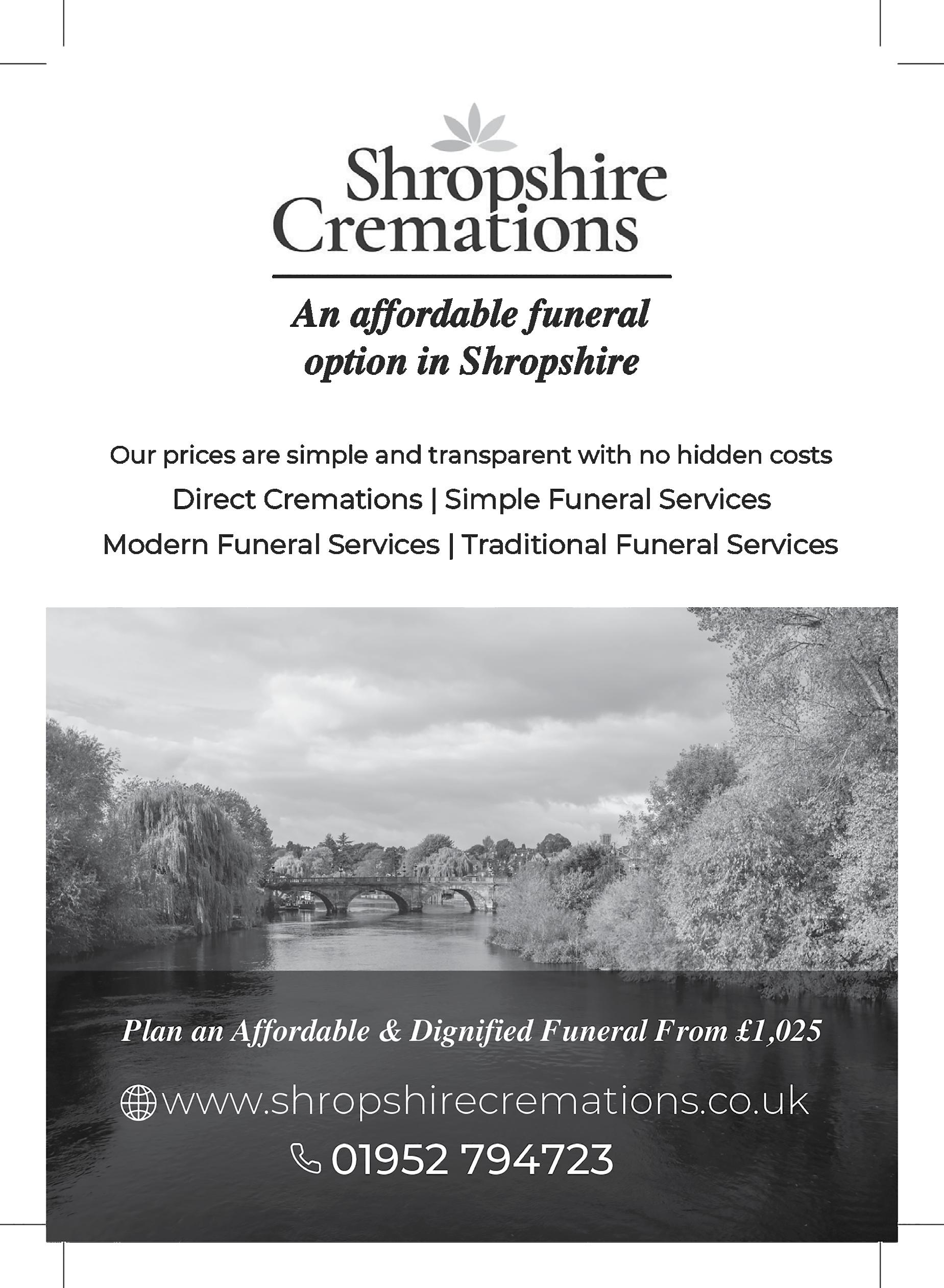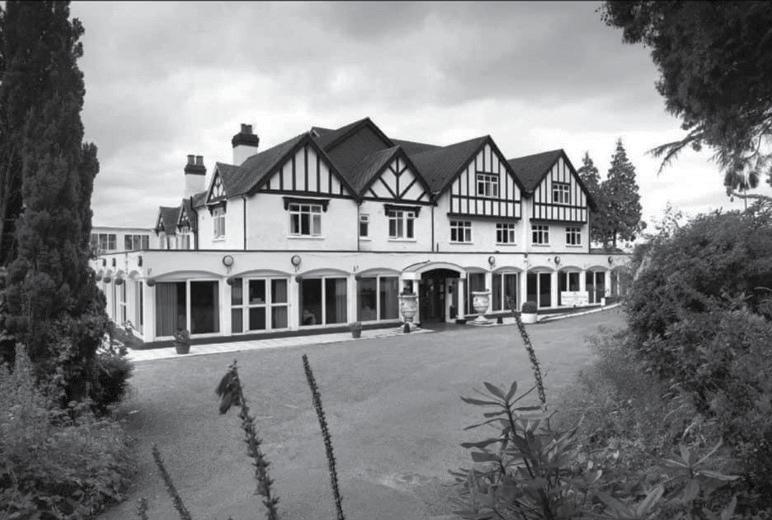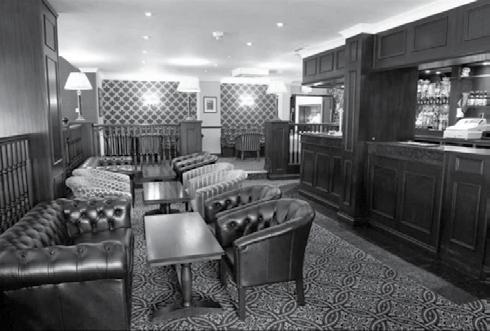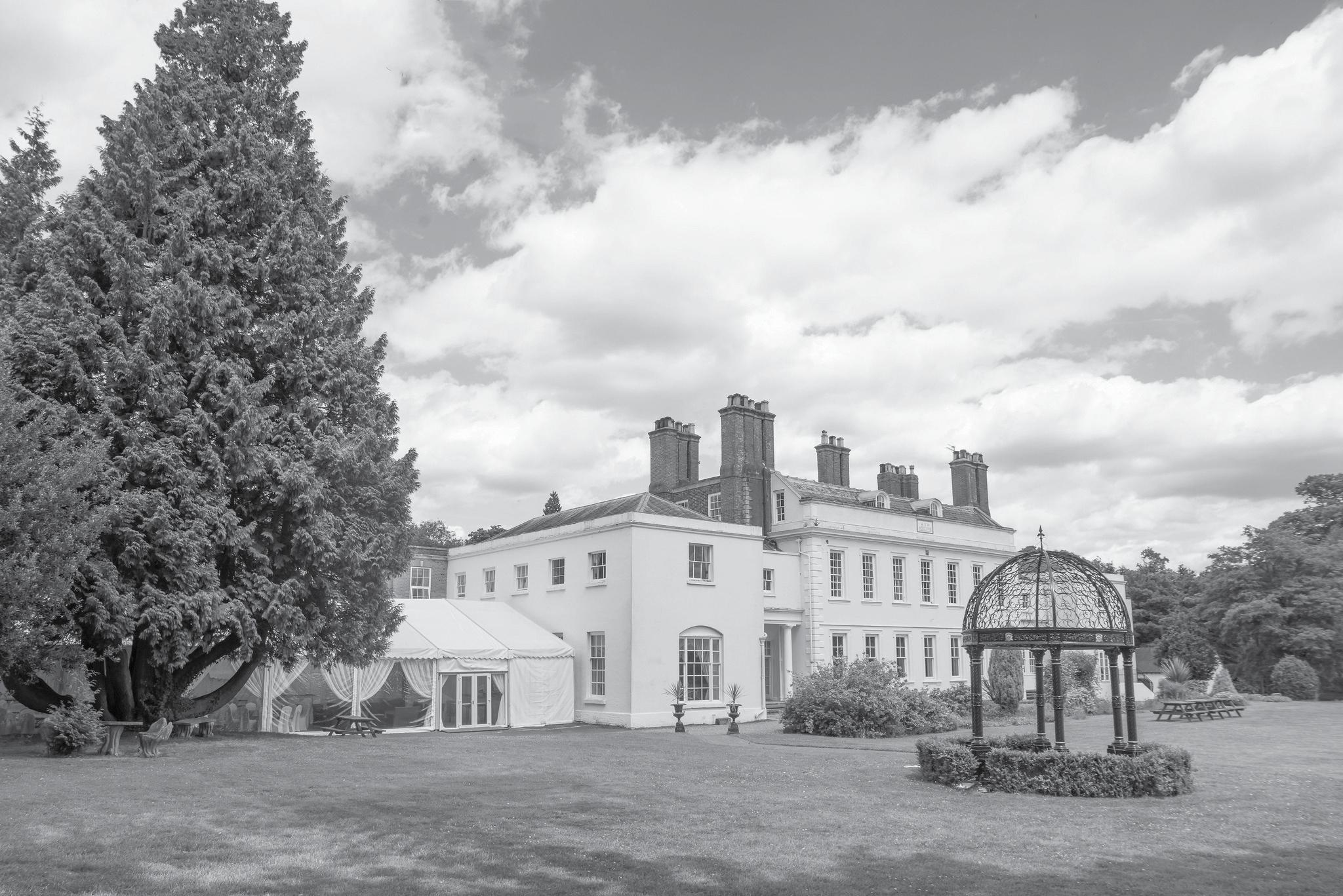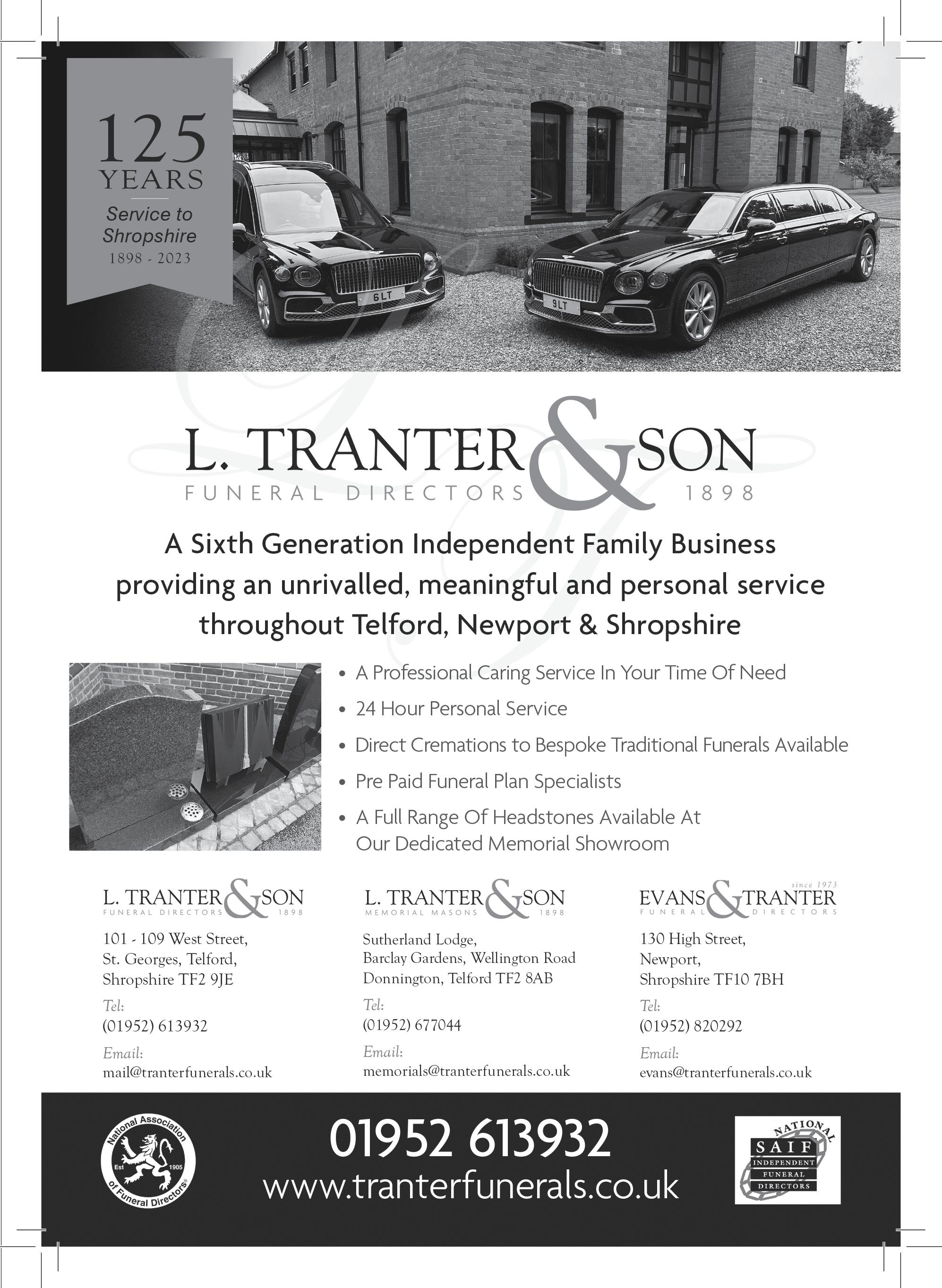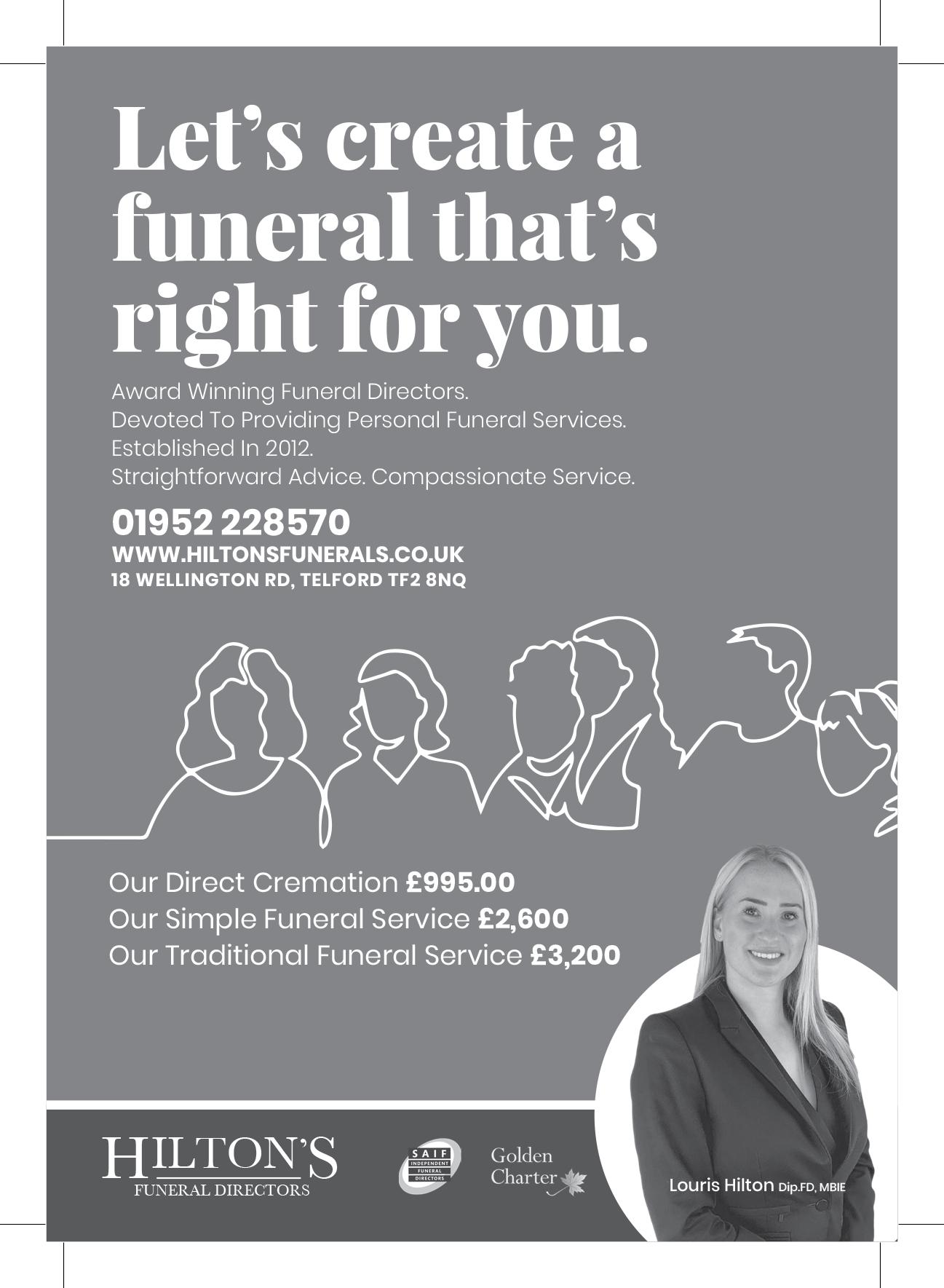
Practical help and support for relatives and friends following the death of a loved one

Princess Royal Hospital (Telford)
Bereavement Office: 01952 641222 extension 4741
Email: sath.bereavement@nhs.net


Introduction
On behalf of all the staff in the Trust we would like to offer our deepest sympathy to you and your family at this very difficult time. We also appreciate that following the death of a loved one there are a number of practical issues that need to be dealt with straight away and we hope that this booklet will help you.
The booklet will provide you with advice about the following:
• The Medical Examiner Service
• The Medical Certificate of Cause of Death
• Registering the death
• Deaths reported to the coroner
• How to arrange a funeral
The second part of this booklet will aim to give you some ideas for help and emotional support that many people need over the weeks and months to come. It may help you to understand some of the emotions which are normal for people to feel whilst grieving and coping with the loss of a loved one.
Dealing with the immediate practicalities
What
needs to be done?
• Collect any belongings or valuables which will remain in the clinical area where your loved one died, or valuable items will have been entered into the Cashiers Office
• Register the death at the Register Office following the assistance of the Medical Examiner Service
• Arrange a funeral, usually via a Funeral Director
Other things to consider
• You may wish to arrange to visit your loved one
• Whether you want a burial or cremation
• You may wish to talk to someone about your feelings e.g. Hospital Chaplain
• You need to make a list of various authorities/organisations to inform them of the death
• You may wish to contact support agencies
Other useful information can be found in the Department for Work and Pensions publication called “What to do after a death” from the Registrar of Births, Marriages and Deaths or via the website on What to do after someone dies: Register the death - GOV.UK (www.gov.uk)
What happens next
The Bereavement Team will endeavour to telephone you within 24 hours of being notified of the death, except public holidays and weekends when you will be contacted the next working day. If you have any concerns/queries, please feel free to contact the bereavement service after 11am on the next working day on the number on the front cover of this booklet.
The Bereavement Officer will advise you on the role of our Medical Examiner, what happens next and advise you when the Medical Certificate of Cause of Death (MCCD) is ready to be sent over to the Registration Service. During this initial contact, the Bereavement Officer may enquire about funeral arrangements for your relative and any special cultural considerations that need to be addressed. Following this, you may wish to raise any questions about how next to proceed and our officer will assist you in any way they are able.
Medical Examiner Service and the Medical Certificate of Cause of Death
The Princess Royal Hospital (Telford) provides a Medical Examiner service which is a statutory system for independently reviewing deaths and approving the proposed cause of death. This service consists of senior medical practitioners and medical examiner officers that have been independent from the care your loved one received.
The identified next of kin will receive a telephone call from the Medical Examiner or a qualified Medical Examiner Officer, the nature of which is to discuss the nursing care, medical treatment and provisional cause of death of the person important to you. This is a chance for you to ask any questions you may have regarding any aspect of their hospital admission and advice will be given to you as to how this can be taken forward.
Following this telephone conversation the Medical Examiner will liaise with the treating doctor to write the MCCD.
Once the MCCD has been completed, the Bereavement Team will send the certificate electronically to the Registrar’s office, and so you will not be required to attend the hospital to collect this certificate. They will also provide your contact details to the Registrars and will contact you once this has been completed. They will also explain the next steps and ensure you remain supported at this time.
The Medical Examiner Service does endeavour to complete the MCCD within 3 days after the person important to you has died, however, in some circumstances this can take a little longer. In some cases, the Medical Examiner or treating doctor may need to speak to the coroner before proceeding and when that happens, a short delay may occur before we can issue the certificate. In either situation we will, of course, keep you informed of this. If the death has been reported to the coroner, you will be advised of what will happen next.
Registering the death
Once you have been notified that the MCCD has been completed you can register the death. This is a legal requirement and should be done within 5 days from the date the MCCD has been approved by the Medical Examiner and sent to the Registration Service (unless the death has been reported to the coroner).
The Registration Office will contact you to book an appointment to attend their office. Usually, registration should take place in the district Registrar’s Office where the death occurred, irrespective of where the person normally lived. However, families/Next of Kins may ask the registrars if they can attend a more local Registrar’s office. The death cannot be registered without a MCCD being approved and signed by a Medical Examiner.
If you wish to contact the Registrar’s Office further please ring 01952 382444
The address is:
Telford & Wrekin Register Office
Wellington Civic & Leisure Centre
Tan Bank
Wellington
Telford
TF1 1LX
Wellington (Shropshire) Station
VICTORIA ROAD
Telford & Wrekin
The Princess Royal Hospital
GRAINGERDRIVE
North
Leading to The Princess Royal Hospital TF1 6TF LYCHGATE WALK
QUEEN STREET KINGSTREET KINGSTREET SUTHERLANDROAD CONSTITUT I ON HILL THE PARADE
ROWLANDS GATE BRIDGE ROAD
Telford & Wrekin Register Office TF1 1LX TAN BANK
Who can register the death?
• A relative of the deceased
• Partner of the deceased
• Representative of the deceased
• Someone present at the death
• The person making the funeral arrangements
What needs to be taken to register the death?
• The deceased’s medical card (NHS card), if available
• The deceased’s birth certificate, if available
• The deceased’s marriage or civil partnership certificate, if appropriate and available
What will the Registrar need to know about the deceased?
• Their full name and surname (and maiden name, where appropriate)
• Their date and place of birth (town and county if born in the UK and country if born abroad)
• The date and place of death
• The last usual address of the person
• The occupation, or last occupation, if retired
• The name and occupation of their spouse or civil partner, if applicable
• Whether the deceased was receiving a pension or allowance from public funds
• If the deceased was married, the full name and date of birth of the surviving widow, widower or civil partner
The Registrar will give you:
The Death Certificate: this is a copy of the entry in the Death Register. You may need one or more Death Certificates for the will and for any pension claims, insurance policies etc. These are available for a fee. Further copies can be obtained at a later date if required.
A Certificate of Burial or Cremation: this is a ‘green form’ which enables you to arrange a funeral. This will be given to your Funeral Director as early as possible by the Registrar’s office.
A reference number to access the Government service called ‘Tell Us Once’, which helps you inform government departments and local councils when someone dies.
At this time there is a tremendous burden placed on those left behind to ensure that various government departments or local authority services are aware. During your appointment with the Registrar, you will be offered the opportunity to take up an additional service called ‘Tell Us Once’, which is provided free of charge.
If you use this service information can be sent to a number of organisations and services simultaneously informing them that your loved one has died (for example, Housing Benefit Office, Council Tax, Library, Blue Badge, Pensions & Benefits, Passport, Driving Licence). This will remove the burden from you to inform all agencies and services individually.
The website address is www.gov.uk/tell-us-once or telephone 0800 085 7308.
Deaths reported to the coroner
Coroners are usually lawyers and sometimes doctors. Coroners are independent judicial officers – this means that no-one else can tell them or direct them what they should do, but they must follow the laws and regulations that apply. Coroners are helped by officers who are investigators who usually have a police or medical background. These officers receive the reports of deaths and make enquiries on behalf of the coroner.
The coroner has a duty to find out the medical cause of death, if it is not known, and to enquire about the cause of death, if it was due to violence, or industrial disease or was otherwise unnatural.
How are deaths reported to the coroner?
The Medical Examiner will oversee the requirement to refer the death to the coroner once they have spoken with the treating doctor.
The death will be reported to the coroner if it resulted from, or occurred in any of these, and sometimes other circumstances:
• The cause of death is not known or is uncertain
• The death occurred whilst a patient was undergoing an operation or did not recover from the anaesthetic
• The death was caused by an industrial injury or disease
• The death was violent or unnatural or occurred under suspicious circumstances
• The death followed a fall or accident
• The death occurred as a result of violence, neglect or abortion, or any kind of poisoning
• The coroner may be the only person who can certify the cause of death
What will the coroner do?
The coroner may decide that the death was quite natural and will allow a doctor to issue a Medical Certificate of Cause of Death (the coroner’s officer may contact relatives directly to discuss this). If not, the coroner may ask a Pathologist to examine the body by means of a post-mortem examination. If the result of the post-mortem examination shows the death to have been due to natural causes, the coroner will issue the Medical Certificate of Cause of Death and this will be sent to the Registry Office directly. The coroner will advise you once this certificate has been issued and you may then make an appointment to register the death at the Registry Office.
What if the death was not due to natural causes?
If the death is not due to natural causes the coroner will hold an inquest. An inquest is an inquiry to find out exactly who had died, and how, when and where they died, together with information needed by the Registrar of Deaths so that the death can be registered. Because there will be a delay before a full Death Certificate is available, the coroner will usually issue an interim Death Certificate, which is accepted by most banks and building societies. The coroner may also issue a burial or cremation order so that the funeral can take place before the inquest.
Further information may be obtained from the following website www.gov.uk/after-a-death/when-a-death-is-reported-to-a-coroner
Arranging a funeral
You do not have to wait until you have registered the death before contacting a Funeral Director. Funeral Directors are available 24 hours a day, 7 days a week and the earlier they become involved, the sooner they will be able to act on your behalf. However, the final arrangements for the funeral should not be made until you are sure the death does not have to be referred to the coroner. If the death has been referred to the coroner, they will advise you what to do. Your Funeral Director will liaise with the coroner for you. If a post-mortem examination is required, then the date of the funeral may be affected. You will also need to consider what type of funeral your loved one would have wanted and whether they have left any instructions about this.
Alternatives to traditional funerals
There are more options concerning the content of a funeral ceremony and its duration than many people realise. The majority of people choose to make their arrangements through a Funeral Director, but some people see “do-it-yourself” funerals as more personal and less expensive. If this approach appeals and you have time to research and prepare, enquire at the cemeteries and crematorium department of your local authority for guidance. You could also get information from the Natural Death Centre (www.naturaldeath.org.uk) helpline – 01962 712690.
Choosing a Funeral Director
Funeral Directors will manage funeral arrangements and give advice and support. Check if the Funeral Director you choose belongs to a trade association. This requires them to provide full information about their services and prices. These factors may influence your choice:
• Location
• Range of services provided
• Cost
• The way you are treated by the staff
• Recommendation of those who have used the services
• Ownership (small family business or large firm)
• A simple funeral
Most people would probably require the Funeral Director to provide the following services as a minimum:
• Make all the necessary arrangements
• Provide appropriate staff
• Provide a suitable coffin
• Transfer the deceased from the place of death to the Funeral Director’s premises
• Care for the deceased prior to the funeral
• Arrange for burial or cremation
• Embalming, visiting or providing a limousine are optional extras
Funeral costs
Costs for the same service may vary considerably from one Funeral Director to another and so you may wish to get more than one quote to compare costs. “Disbursements” are fees paid to others, e.g. cremation, minister, doctor’s certificate, newspaper announcements, flowers etc. Ask the Funeral Director for a written quotation detailing all of these fees. Funeral payments are normally recoverable from the deceased’s estate.
Paying for a funeral
If you arrange a funeral, you are responsible for paying the bill, so you need to ensure that there are sufficient funds in place to cover these costs.
If you are finding it difficult to pay for a funeral that you have had to arrange, you may be entitled to receive a Social Fund Funeral Payment from the Department for Work and Pensions, providing you or your partner receive one of the following:
• Income Support/Employment and Support Allowance
• Housing Benefit
• Council Tax Benefit
• Job Seeker’s Allowance (income based)
• Disabled Person’s Tax Credit
• Working Family’s Tax Credit
Please note there may still be a fee, which has to be paid immediately, even if you are entitled to receive a Social Fund Funeral payment.
The website is Get help with funeral costs (Funeral Expenses Payment): How it works - GOV.UK (www.gov.uk)
Repatriation
Sending a deceased person abroad usually requires permission from the coroner at least four days before the body is to be moved. Exceptions can be made for religious purposes. It is best to discuss this with the Bereavement Team and/or Registrar when you register the death, and they will be able to advise you about the correct process to follow.
Who do you need to inform?
In addition to the Government’s Service ‘Tell Us Once’, other services you may need to inform are:
• Insurance companies
• Bank and/or building society
• Employer
• Utility companies
• GP, dentist, optician or anyone else providing medical care
• Subscriptions, Energy/ Telephone/ TV providers
Life Ledger provide a free and easy to use service to facilitate informing numerous such oraganisations. To find out more visit: www.lifeledger.com
Tissue Donation
Tissue donation is not an easy subject for relative/friends to think about at such a difficult time. Most people are aware that hundreds of lives are saved every year by donated organs, e.g. heart and lungs. You may not realise that donated tissue, such as skin, bone, cornea and heart valves can dramatically improve the quality of life for others and even save them.
Tissue donation must take place within 24 hours and so if you would like more information about this then you can contact the following for advice:
Tissue Service: 0800 432 0559
NHS Blood & Transfusion office (NHSBT): 0300 123 0805 Further information may be obtained from the website: www.nhsbt.nhs.uk/tissuedonation




